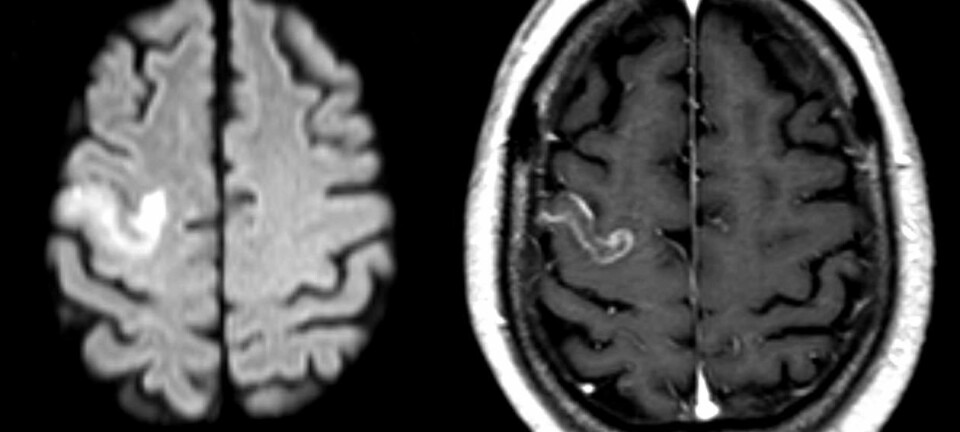
How to spot a liar
If someone copies your body language it might be a sign that they are lying to you.
If you talk with someone who mirrors your body language closely and nods along in agreement, then there is a high probability that they are lying to you.
This is the conclusion of a new research project between Aarhus University in Denmark and Arizona State University, USA.
92 American students took part in the trial. Their speech patterns and movements were monitored, pixel by pixel, from video footage of conversations between pairs of students.
The trial showed that those who had been instructed to lie to their partner mirrored their partner’s movements more often. For example, by nodding just after their partner had done so.
“Our theory is that the participants who lied coordinated their movements with their conversation partner without thinking about it, to cater to them, either because they struggled to lie or to appear more convincing,” says Riccardo Fusaroli, lecturer in cognitive science at the Department of Communication and Culture at Aarhus University, Denmark.
Fusaroli is co-author on the new study, which is published in the scientific journal PLOS ONE.
Playing Devil’s Advocate
Scientists behind the new study developed a method, which they refer to as the “Devil’s Advocate” method.
All participants were American undergraduate students, who took part in the trial as part of their studies.
Each person was given a questionnaire where they described their opinions on a range of controversial topics, such as the death penalty, legalisation of cannabis, and LGBTQ marriage rights.
The students were split up into pairs, and asked to complete two exercises.
In the first exercise, the pair met each other and had an eight-minute chat on a topic that they disagreed on (according to their survey responses).
Next, one person was asked to lie to their partner during a discussion on another topic—for example that they were in favour of legalising cannabis, even though they were actually opposed to it.
After eight minutes, each of the participants were interviewed separately.
“The goal with the research was to get an insight into the coordination of speech rhythms and body language in the conversations involving deception and whether it’s significantly different from coordination in more honest conversation between the same people,” says Fusaroli.
It’s not always wrong to lie
Fusaroli had not expected to identify a lie detector.
“Our research is aimed at better understanding social coordination. We often enact small deception, either strategically or to improve and maintain our relationships, so understanding what happens in those circumstances is important to understand how we function socially,” he says and adds:
“Insights from this kind of research is often used to inspire intervention programs for people with social impairment, e.g. people on the autism spectrum or people with facial paralysis. However, there is little work on how we interact effectively when deception and conflict are present and these are important social skills that should be addressed.”
Fusaroli’s results have no immediate application for patients, but the results are an interesting development in understanding how people communicate.
“Of course, it is not always wrong to deceive. We do that regularly to maintain and improve relationships. Let’s say that my girlfriend comes home with a terrible new haircut. or a student of mine has not understood anything from a class, Straight-up honesty might not be the best reaction, and some deception might be necessary to give constructive feedback. So deception isn’t always negative,” he says.
“Crucially, our study suggests that something special happens during these conversations. Deception is not only something that the deceiver puts to play, but it’s something that happens between all people involved and changes the way they interact down to the level of small body movements. This focus on the interpersonal aspects of deception has mostly been neglected so far and we need to address it more.”
----------------------
Read more in the Danish version of this story on Videnskab.dk
Translated by: Catherine Jex







